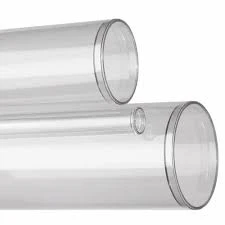Dec . 13, 2024 19:29 Back to list
hdpe pipe drip irrigation
The Benefits of HDPE Pipe in Drip Irrigation Systems
Drip irrigation is an innovative agricultural technique that efficiently delivers water directly to the root zone of plants. Among various materials used for drip irrigation systems, High-Density Polyethylene (HDPE) pipes have gained immense popularity due to their numerous advantages. This article will explore the benefits of using HDPE pipes in drip irrigation, highlighting their durability, flexibility, and environmental sustainability.
Durability and Longevity
One of the most significant advantages of HDPE pipes is their exceptional durability. Manufactured from high-density polyethylene, these pipes exhibit resistance to various environmental factors such as UV radiation, chemical corrosion, and microbial growth. Unlike traditional materials such as PVC or metal, HDPE pipes do not degrade over time, ensuring a longer lifespan for irrigation systems. This durability translates into lower maintenance costs and fewer replacements, making HDPE a cost-effective solution for farmers and agricultural enterprises.
Flexibility and Ease of Installation
HDPE pipes are incredibly flexible, which makes them easy to handle and install. This characteristic is beneficial when navigating around obstacles in the field, as the pipes can bend and curve without losing integrity. Furthermore, their lightweight nature simplifies transportation and reduces labor costs during installation. With fewer joints and connections required, the risk of leaks and water wastage is minimized, making HDPE pipes an efficient choice for drip irrigation systems.
Enhanced Water Management
hdpe pipe drip irrigation

Drip irrigation systems utilizing HDPE pipes provide precise control over water application. This method allows for localized irrigation, directing water directly to the root zone of crops, thereby reducing evaporation and runoff. As a result, farmers can use water more efficiently, leading to improved crop yields and reduced water consumption. The ability to monitor and tailor water application based on specific plant needs further enhances water management, making HDPE pipes a valuable asset in sustainable agriculture practices.
Resistance to Blockages
Another noteworthy feature of HDPE pipes is their resistance to blockages. The smooth interior surface of HDPE pipes significantly reduces the buildup of minerals and sediments, which are common issues in other types of irrigation systems. This characteristic not only ensures a steady flow of water but also reduces the need for frequent maintenance and cleaning. Farmers can benefit from uninterrupted irrigation schedules, leading to healthier crops and improved agricultural productivity.
Environmental Sustainability
As the world grapples with water scarcity and environmental degradation, the demand for sustainable agricultural practices has never been higher. HDPE pipes align well with environmental sustainability goals. Their long lifespan contributes to reduced waste, while their efficient water management capabilities result in lower water consumption. Additionally, HDPE is 100% recyclable, meaning that at the end of their life cycle, these pipes can be repurposed, reducing the environmental footprint of agricultural practices.
Conclusion
In conclusion, HDPE pipes play a crucial role in modern drip irrigation systems, offering a myriad of benefits that enhance agricultural efficiency and sustainability. Their durability, flexibility, and resistance to blockages make them an ideal choice for farmers seeking reliable and effective irrigation solutions. As water conservation becomes increasingly important in the face of global challenges, HDPE pipes not only meet the needs of today’s agriculture but also pave the way for a more sustainable future. Embracing HDPE technology can lead to healthier crops, optimized water usage, and a positive impact on the environment, making it a wise investment for those in the agricultural sector.
-
Durable Glossy PVC Rigid Sheet | Premium High-Shine Panels
NewsAug.26,2025
-
Durable PP Rigid Sheet: Lightweight, Chemical Resistant Solutions
NewsAug.21,2025
-
PVC Grey Sheet for Extraction: Chemical Resistant & Durable
NewsAug.19,2025
-
Durable PVC Pipe Fittings for Plumbing & Irrigation Needs
NewsAug.18,2025
-
HDPE Steel Belt Reinforced Spiral Corrugated Pipe | High Strength
NewsAug.17,2025
-
HDPE Pipe Fittings: Durable, Leak-Proof Solutions
NewsAug.16,2025

